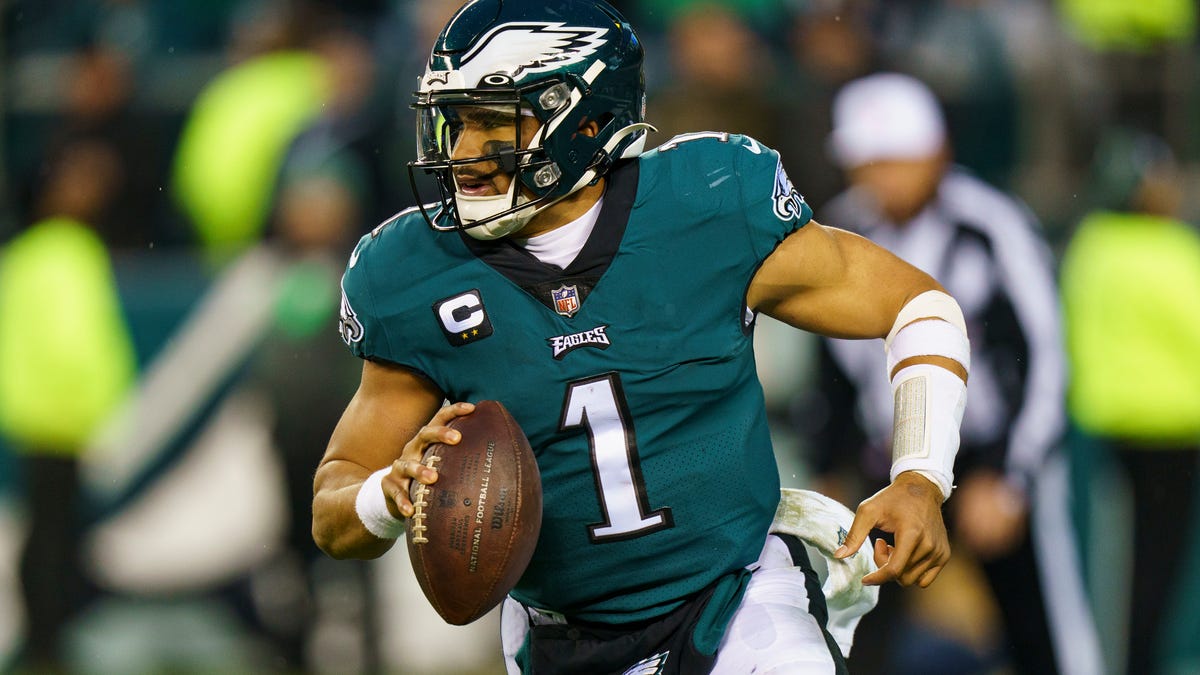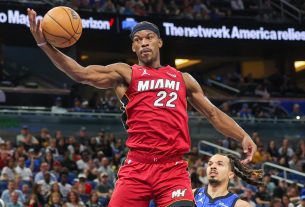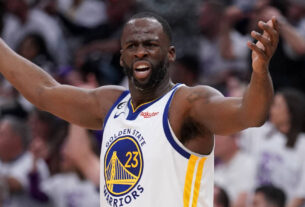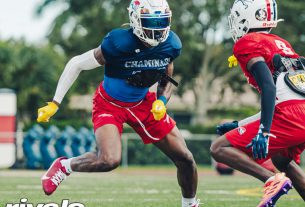Marlin Briscoe is smiling in heaven. Doug Williams probably has a huge grin on his face. The first Black starting quarterback in NFL history — Briscoe — and the first Black quarterback to start and win Super Bowl MVP — Williams — are the giants whose shoulders Kansas City’s Patrick Mahomes and Philadelphia’s Jalen Hurts are standing on. And between Rihanna’s halftime performance and the fact that we’re about to watch history made as two Black quarterbacks take center stage in sports’ biggest game — you could make the case that it’s destiny, given that it will all take place during Black History Month.
But, don’t let this moment distract you from the fact that Black coaches are still getting a raw deal at a time in which Black quarterbacks are being elevated like never before. Two things can be true at once, this is why this moment is such a joyous, yet infuriating one.
Sixteen years after we watched Lovie Smith and Tony Dungy make history as the first two Black head coaches to appear in the Super Bowl, we’re watching Mahomes and Hurts do it for Black quarterbacks. But since that February day in 2007, things for Black coaches have seemed to fall apart as they’ve improved for Black quarterbacks.
Eleven Black quarterbacks started Week 1. Now compare that to the three Black coaches who had jobs when the season began — Mike McDaniel doesn’t count, as he chooses to identify as a human being with a Black dad.
When Lovie Smith got fired in Houston, three became two. And as we wait for the remaining hires to be made, there isn’t a track record or feeling that anything will be done in the next few weeks to greatly improve these dismal numbers. We’re at a point in which the league, the owners, and fans are fine with having a Black man be their quarterback — but not their coach.
Over the years, the trajectory for Black quarterbacks has steadily risen in a way that hasn’t happened for Black coaches. By the time we reach kickoff, it will mean that eight Black quarterbacks have started in the Super Bowl. It’s a direct result of evolution over the years. What was started by Fritz Pollard, Briscoe, and Williams led the way for Michael Vick to be the first Black quarterback drafted No. 1 and for Steve McNair to be the first Black quarterback to win MVP — which was followed by Mahomes and Lamar Jackson.
Progress on the field, not on the sidelines
This type of progress isn’t something we’ve seen with Black coaches, though. At roughly this point last year, there were only two Black head coaches in the league — Mike Tomlin in Pittsburgh and David Culley in Houston. As we know, Culley would get fired after one season by the Texans and would get replaced by Smith, another Black coach that would be fired after a lone year on the job. Brian Flores’ class-action lawsuit (which was joined by Ray Horton and Steve Wilks) is still hovering over the league. But, you wouldn’t know it the way that Wilks wasn’t able to keep his interim tag — which is a death sentence for Black coaches — with the Carolina Panthers despite doing a wonderful job.
In 2000, Dennis Green (Minnesota) and Dungy (Tampa) were the only two Black full-time head coaches in the NFL. Twenty-three years later, we’re in the same place, but worse. The XFL is just weeks away from rebooting and their eight-team league already has four Black head coaches. It’s a jarring stat that embodies just how big this problem is, despite what Todd Bowles thinks.
“I think the minute you guys stop making a big deal about it, everybody else will as well,” one of the two Black coaches in the league had the audacity to say earlier in the season.
In less than two weeks, a league that’s majority Black will make history when two Black quarterbacks play in a game that will feature entertainment before the game and during halftime from Black performers in a month that’s dedicated to recognizing the contributions to what Black people have made to this country. It will be a joyous occasion.
However, while you’re enjoying the game, I beg of you to ask one question to the company you’ll keep on that day. “If the NFL, America and the world can accept all this Blackness, then why won’t they accept Black coaches?” And while you’re waiting for people to answer that question, realize that “End Racism” was etched on the field all season.




